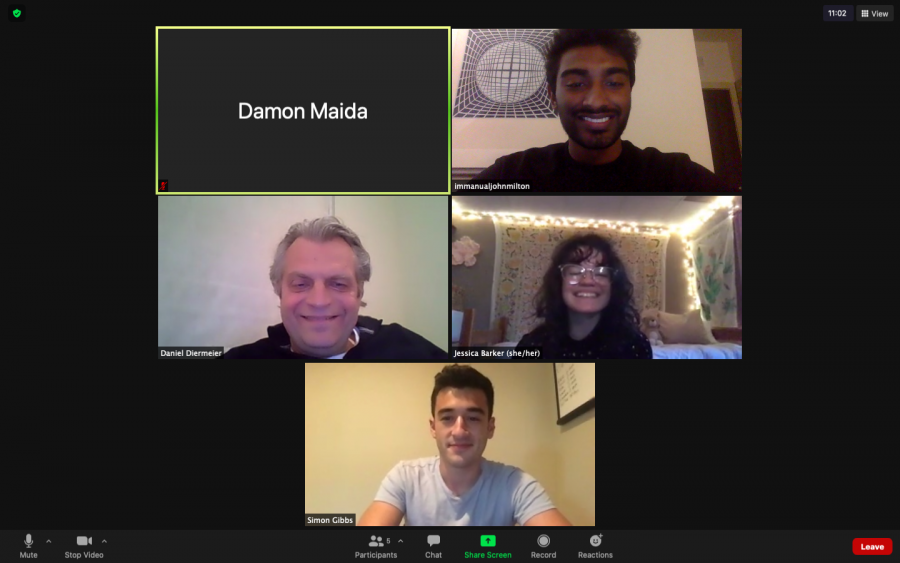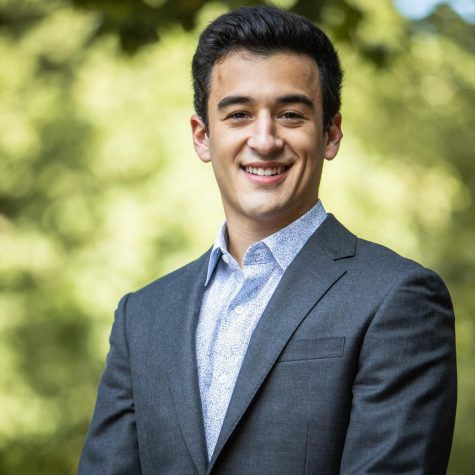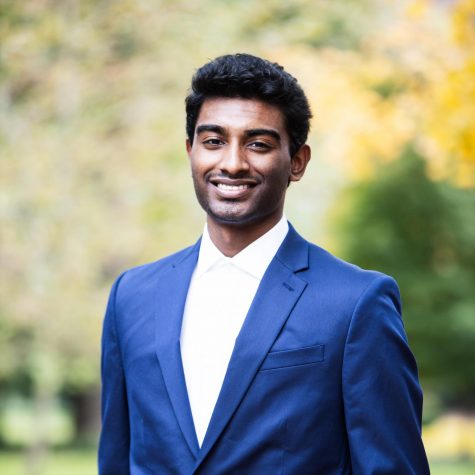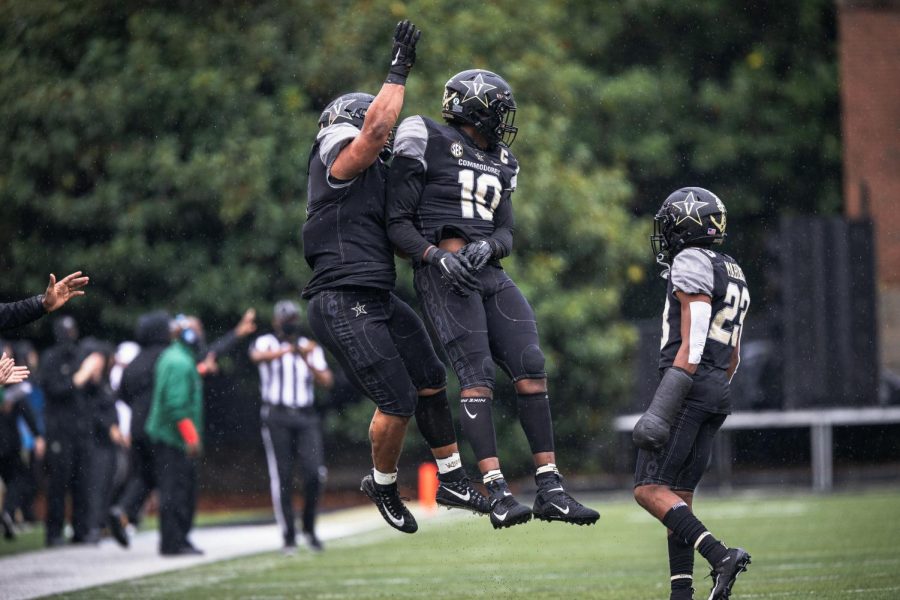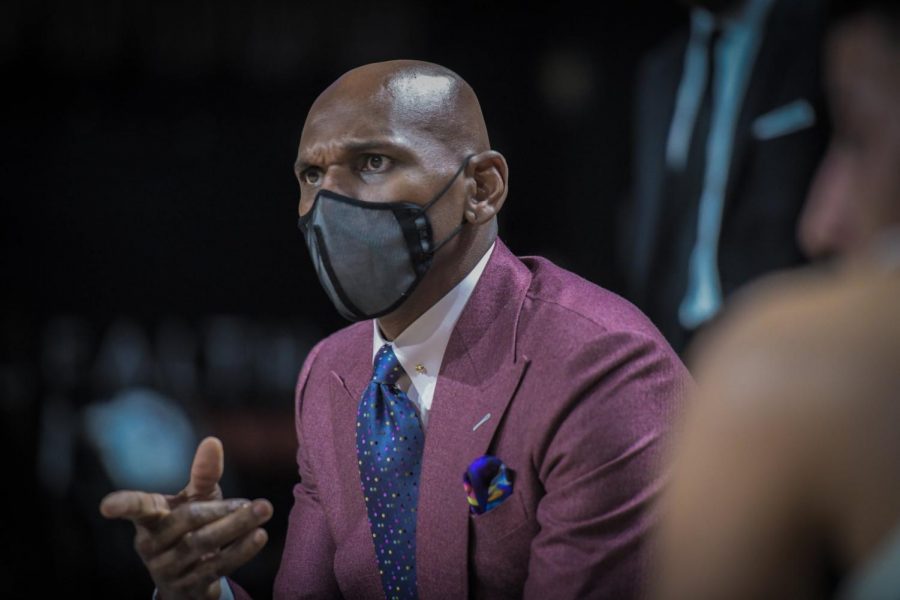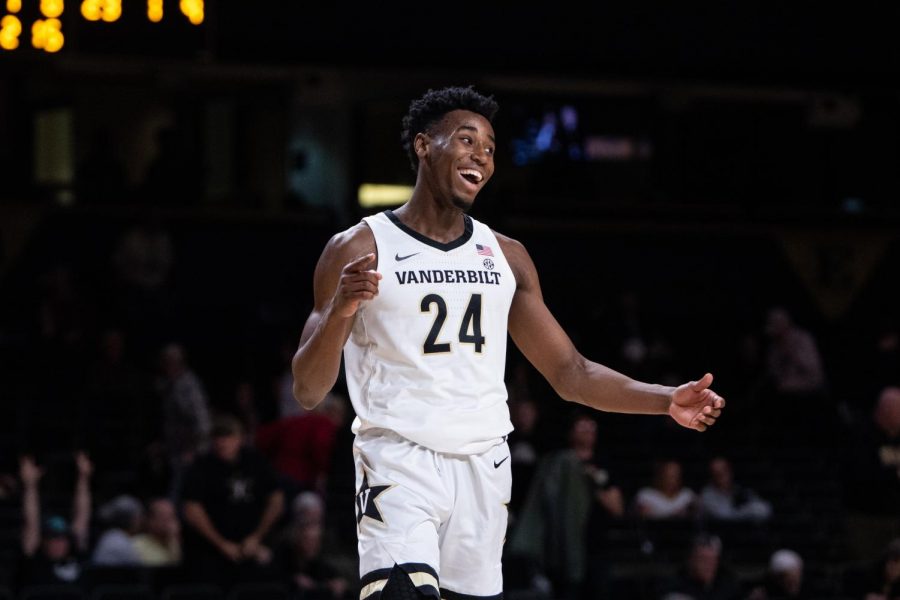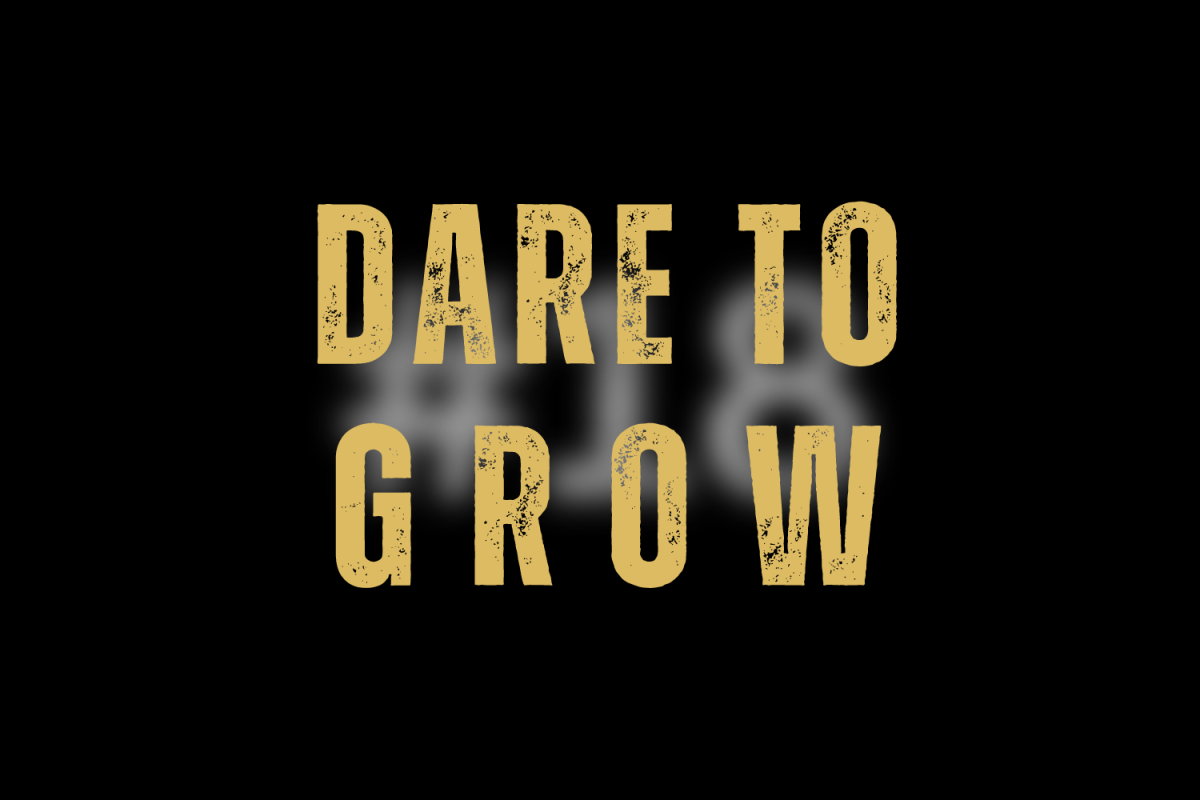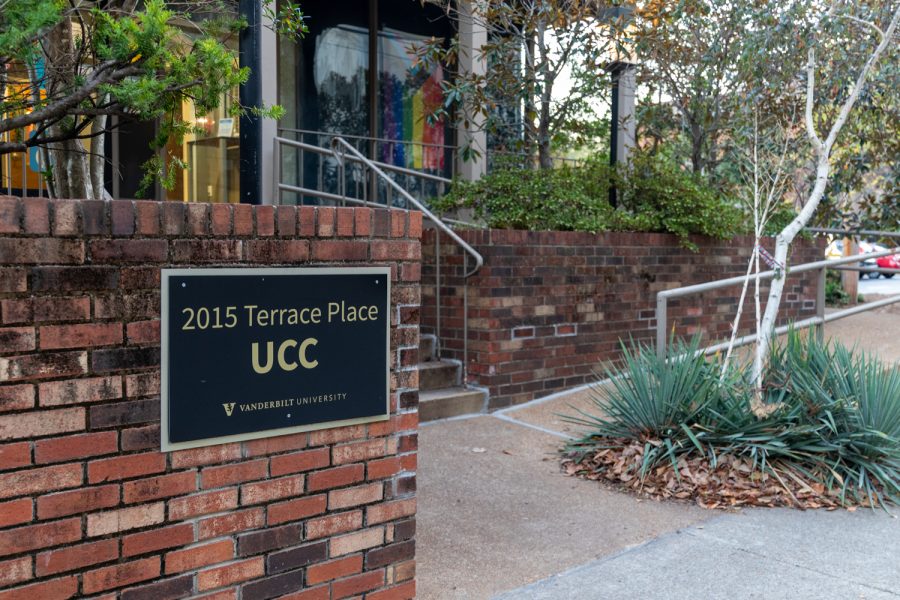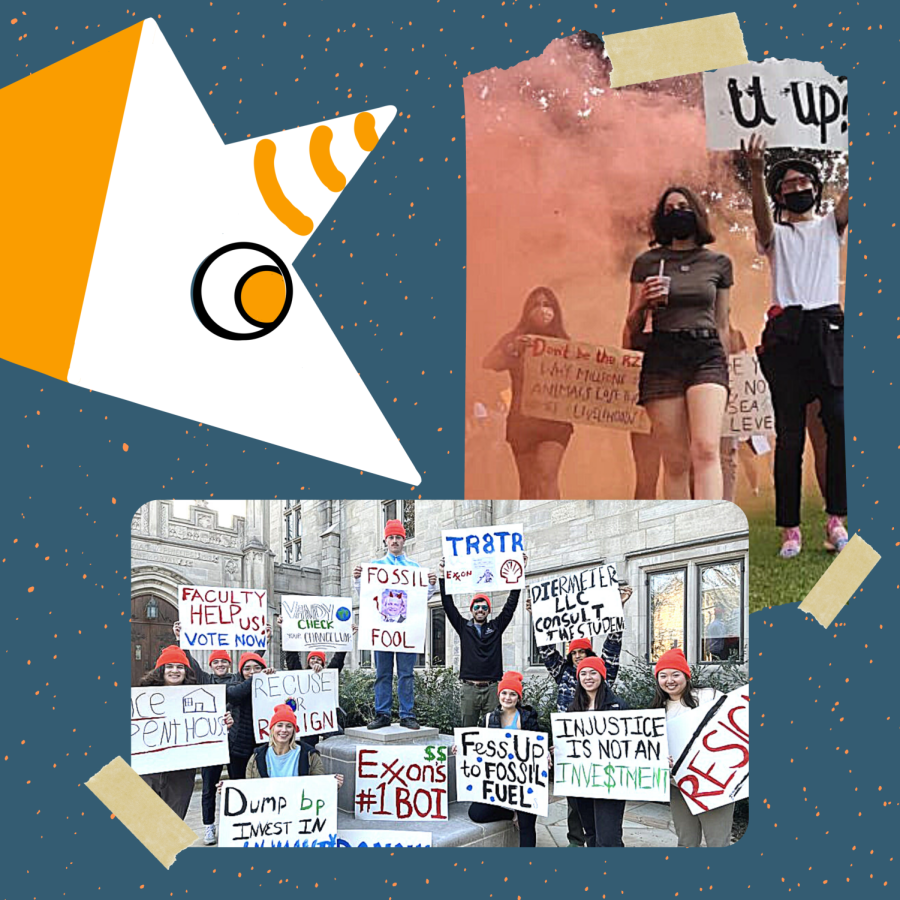After serving his first semester as Vanderbilt’s ninth chancellor, former University of Chicago provost Daniel Diermeier reflected on his start here at Vanderbilt.
In a Nov. 18 Zoom interview with The Hustler, Diermeier discussed the future of research, the importance of mental wellbeing for students in the spring semester and his stance on divestment from fossil fuels.
Vanderbilt Hustler: At the beginning of this semester, there were a lot of questions around having an in-person school year. Vanderbilt made a decision to come back when a lot of universities did not. So looking back, what do you think of that decision?
Chancellor Daniel Diermeier: I love it. It was fantastic. I think we did a great job. It was a proud moment for us as a university to be able to pull this off. The staff worked fantastically over many weeks to get us there. The faculty worked hard over the summer and were super innovative. And I think our students did a great job. We asked them to step up. They did.
Of course, there were challenges. This is the biggest challenge the world has faced since the Second World War. But I love where we are. I think that we handled it very well, and I couldn’t be more proud of where we are.
Vanderbilt also played a huge role in the development of the Moderna COVID-19 vaccine. So, bearing that in mind, what are your goals for research at large for the university in the next year or in the next five years?
There are many aspects that we’re thinking about. We are particularly proud of the work that’s going on in the whole biomedical area. You know we played a role in the Moderna vaccine. We played a significant role in the development of monoclonal antibodies. We played a significant role in clinical tests. We played a very significant role in developing Remdesivir. In every aspect of what we are now thinking about with regards to therapeutics and vaccines for COVID-19, Vanderbilt played a super important role. It’s just a testament to the excellence of our basic science, our biology and of our whole research that’s going on in the biomedical area. We’re going to continue to invest in that. We’re excited about that.
There’s a variety of other aspects that we are also focused on. We are also going to make significant investments in computer science and neuroscience, and then we are very interested in attracting additional great faculty. We launched the Destination Vanderbilt initiative a few weeks ago where our goal is to bring 60 additional faculty to Vanderbilt. That’s a hundred million dollar commitment over the next few years in order to attract the best faculty in order to further enhance our research and teaching capabilities.
So speaking on Destination Vanderbilt, a hundred million dollars is a lot. Are there specific departments and are there specific professors that you are thinking about?
This is open for the entire university. Because of the fact that so many universities are struggling, that’s an opportunity to attract professors to come to Vanderbilt because they may be more willing to move now and they are in other years, or if you’re a Ph.D., you’re looking for a place to go and we can provide that opportunity.
So the criteria for that is: it’s campus wide, but the people that are put forward must be exceptional. So there really must be people that’d we usually would have a very hard time attracting, and now we want to make a go for that. So that means, you know, we’re not going to succeed with everybody—our probabilities of landing these people may be a little bit lower than usual. That’s okay. But that’s the point.
When everybody’s pulling back, we want to lean in. And that means that we’re open to bringing great talent to Vanderbilt.
So as the semester started, we had really low numbers and sometimes even downward trends. Lately, the cases have been going back up, has this changed your perception of what’s going on and how does this influence what you think moving forward for the spring semester?
You’re right that we had very low numbers for about the first two-thirds or three-quarters of the semester. Then our numbers increased, and then they plateaued at a higher level. It’s kind of like a step function. It didn’t give us a lot of concern once we realized that things were plateauing. It created additional strain on our staff particularly on the contact-tracing side, but we had enough quarantine and isolation facilities to handle that.
The main insight—what we’ve learned throughout the quarter—is that if you test regularly, you do asymptomatic testing, you have effective contract tracing and you’re able to identify hotspots and put people in quarantine, we can manage this at a pretty low level of cases—a much lower level than our surrounding community.
What we’ve learned from that is that there is hardly any risk or no risk in classrooms. There’s hardly any risk in residence halls. The main risk that we have are off-campus gatherings.
Our main challenge basically has been to keep the virus from coming in, rather than from the communities being concerned about our students. If you read the newspapers, a lot of the language is about all these students that you unleash on the community. It’s just the opposite. Our student body, our faculty and our staff had much lower rates than the community. That’s our main challenge: how do we make sure that the virus doesn’t come in, so to speak.
The DivestVU movement has picked up support not just from the undergraduate VSG Senate but also now the Graduate Student Council. With that in mind, do you support divesting from fossil fuels?
It’s very important whenever you think about this to understand what the purpose of the endowment is. The purpose of the endowment is to support our students and faculty. It provides support for undergraduates, supports Opportunity Vanderbilt and supports the research of a faculty. It’s not intended to be an advocacy tool.
The way we are thinking about this is that we are very committed to making a positive contribution with respect to sustainability and the consequences of climate change, but we think it’s much more effective to develop innovative solutions. And so you may know that we have made a commitment to carbon neutrality by 2050, but even more importantly, we have recently announced a groundbreaking partnership with the city of Nashville, the Tennessee Valley Authority (TVA) and collective services which allowed allows us to co-fund a solar farm in Tullahoma, Tennessee to fundamentally have our entire electricity generation carbon neutral by 2023.
That’s a super innovative idea. It’s something where we can work together with our partners at the TVA and with the city as well in order to lower our carbon footprint. That’s what universities should do. They should not take advocacy positions on public policy issues. But what they should do is find innovative solutions to have a positive impact on the major challenges that society is facing.
Student burnout is also something that seems to be omnipresent on campus at this moment. Would Vanderbilt ever consider or commit to break days in the future?
It’s a big concern. We’ve asked our students to step up, and the demands on our students are higher than they would be in a typical year. There’s no doubt about that. I’ve been impressed by the creativity of our students to deal with these challenges. I’ve also been impressed by the staff and the faculty, particularly the residential college faculty to come up with new solutions. But there’s no doubt about the fact that this has been very demanding for everyone involved.
We’re thinking about what we are going to do in the spring semester. There are ongoing discussions on that. We’re not quite there on how exactly it’s going to be structured yet, but we’re well aware of burnout, and we’re thinking about how we can make sure that the kind of mental load that is put on our students is taken into account. We want to make sure that we have good solutions for them. We’re still in discussions with the deans and with the teams on what exactly that is going to look like.
In this year’s Equity, Diversity and Inclusion report, the Looking Ahead section states that the university is looking to drive change in key areas, including confronting racism in Vanderbilt’s own past. What does this mean specifically?
We have engaged in the process to look at our practices and what we are doing to support our faculty as well as how we support students and staff. An important part of that has been the formation of the ad hoc committee on the Board of Trustees. That committee has started its work, and we see that the role of the committee and all the various other activities will be an important component to advance our agenda on EDI.
We have started that work and we have already made a lot of progress on that. We have various initiatives on that in a variety of contexts and we have made great progress on faculty hiring. We’ve published the comprehensive support on our activities on that. In partnership with the Board of Trustees, we’re going to continue that process, but we’re not done with that.19
Has there been any discussion on what might happen surrounding graduation and when we might be informed of a decision?
So right now, the plans that we’ve announced half a year ago stay in place. We’ll just have to see how this situation changes. We are right now in a very rough spot in the country as a whole. We have record numbers. Our sense is that we’re going to stick with where we are, but we’re going to have to reevaluate sometime at the beginning of the year. And exactly when that will be, we haven’t decided yet.
To change pace, seeing that it’s football season—is this football team meeting your expectations right now?
I don’t think we’re where we need to be. I think that we’ve had some serious problems. Some of them COVID-induced, some of them because some of our student-athletes opted to not play this year. We’ve also had some injuries. As you know, we had to postpone one game. So our roster is small. But we want to be more competitive than where we are right now. This is not where we want to be. And we need to—when we’re done with the season—we need to think about what drove that. To what extent was that attributable to the specific context of COVID-19 and other factors? But [overall], we’re certainly not where we want to be.
Maybe there haven’t been any specifics discussed yet, but right now, what do you think needs to be done to change their course?
I think there’s a whole variety of things that need to be done. I think that we have to look at how we create an environment where we are able to attract the right student-athletes that would thrive at Vanderbilt. How do we do that? How do we up our game in order to be able to recruit these students to Vanderbilt? And then how do we create an environment for them where they can really thrive?
I think one thing that we sometimes do too much is we sometimes focus too much on our weaknesses and not enough on our strengths. So we’re saying, ‘Well, we don’t have this and the other SEC teams have that.’ I’d like us more to focus on our strengths, the fact that we are providing a great education for our students; that when you come here, you’re not only coming—as Coach Corbin would say—for four years, you’re coming for 40 years. We can prepare you for a career in not only professional athletics, but life. And many of our student-athletes, our alums, have thrived in a whole variety of different careers. We need to be able to tell that story more convincingly and more clearly.
In addition to that, we’re going to have to make some investments as well. That’s for sure. And exactly what that’s going to look like, we’re talking about that. We’re thinking through that. But I think that’s the second component.
Derek Mason’s record as Vanderbilt’s head coach has now fallen to 27-53, leading to some general discussion regarding his future with the program. You mentioned how playing football in a pandemic has impacted this team, from opt-outs to game postponements and more. Do you look at this season and Coach Mason’s future any differently because of this strange pandemic season?
I think whatever we do and whatever we look at, every aspect of what we’re doing right now has to be thought about in the context of COVID-19. We just talked about the student experience, that’s different. The way we’re conducting ourselves, that’s different. The way we’re thinking about where we want to focus on our activities, that’s going to be different. And how we think about the football program is going to be different because of COVID-19 as well. So I don’t think it’s special in any way, shape or form. I think that everything that we do right now is affected by the pandemic, and that includes the football program.
Have you spoken with Derek Mason about his future with the program?
No. The last time I talked to Coach Mason was probably—I think—the first game or the second game, so just around that time.
What does the evaluation process look like between you, athletic director Candice Storey Lee and whoever else might be involved?
That’s, of course, Candice’s—the athletic director’s—main job. So she would look at the program, and she’d evaluate where they are, and where the right people are in place. Then, people make the decisions on that. And obviously, we’ll talk about that. We appointed Candice because she is the perfect person for the job. She’s been in the permanent position now for four months, and she’s been doing a great job. But that’s the process that she would go through with all of our teams and then, depending on where we are, we would talk about it.
Candice and I talk every week, so we are in very close communication. As I mentioned before, I don’t want there to be any daylight between the two of us on how we think about athletics, and I expect that process to continue.
Aaron Nesmith is likely getting drafted early tonight. Do you have a message for him?
Congratulations. Fantastic. We’ll see, but I’ll keep my fingers crossed.
What has this semester taught you about the Vanderbilt community that you didn’t already know?
I had a hunch, but I was blown away by the fact that this truly is a university that has a sense of One Community, One Vanderbilt. People care about each other. They support each other, and they’re willing to work together to find solutions for the even most difficult problems. That is not a given, and that is an intrinsic part of our culture.
We respect each other. We care for each other, and we work things out. That is a great asset that I had heard about, but I hadn’t really fully realized how deeply it is ingrained in what this great university is all about.

